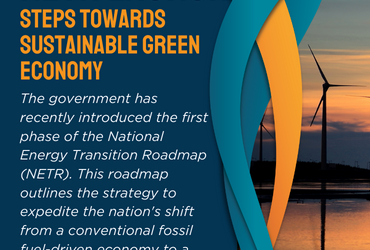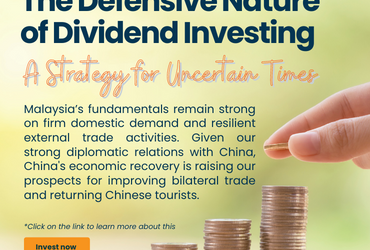
An investment style is simply the approach that investors take when assembling a portfolio of assets to meet their investment objectives. Investment styles can be divided and subdivided into a variety of ways, many of which are highly complex. The focus of this article, however, is on the seven most basic investment styles:

- Value
The value investing style focuses on buying a fundamentally strong company at a reasonable/cheap price. As a result, investors look for companies which offer a low price to earnings ratio, a low price to sales ratio, and a higher dividend yield in general.
- Growth
The growth style of investing seeks for companies with high earnings growth rates, high return on equity, high profit margins, and low dividend yields. The idea is that if a company possesses all of these characteristics, it is likely to be an innovator in its field, growing rapidly and reinvesting most or all of its earnings to fuel future growth.
- Dividend
Dividend investing is an investing strategy that focuses on companies that pay out dividends and are likely to increase their dividend pay-out over time.
- Environmental, Social and Governance (ESG)
ESG investing is a strategy that investors use to create investment portfolios that take environmental, social, and governance (ESG) considerations into account while generating financial returns and making a good impact on society.
- Size
Small-cap stock portfolios have historically outperformed large-cap stock portfolios in terms of returns. Investors can capture size by looking at the market capitalization of a stock.
- Momentum
Momentum investing takes advantage of market volatility and looks for stocks that have outperformed in the past because those stocks tend to outperform in the future. A momentum strategy is based on relative returns from three months to a year.
- Quality
Investors who advocate a quality approach to investing prefer high-quality companies that generate free cash flow and a reasonable return on equity. Aside from that, investors consider other aspects of the business such as management stability, the uniqueness of the business model, and product reliability.
There is no single best style and it depends on the investor’s risk tolerance and overall goals. Style investing provides the benefits of diversification, which minimizes a portfolio’s exposure to risk. It helps to improve diversification because different investment styles cover various situations in the economic cycle.
Phillip Capital Malaysia provides a comprehensive list of portfolios that may suit your investment preferences and financial goals.
As discussed in our previous article, a key difference between Phillip Managed Account for Retirement (PMART) & Phillip Managed Account (PMA) is that PMART is open to all EPF members who have adequate savings in their EPF Account I, to have an alternative for their EPF Savings to be managed by an experienced fund management institution, while PMA is available for cash investors who seek for a customized investment solution that provides capital gain over the long term.
Local mandates:
| Investment Style | Portfolio |
| Value | ∙ PMART Blue Chip & PMA Blue Chip |
| Growth | ∙ PMART Opportunity & PMA Opportunity
∙ PMA Mini Opportunity ∙ PMA Absolute8 |
| Dividend | ∙ PMART Dividend Enhanced & PMA Dividend Enhanced
∙ PMA 4% |
| ESG | ∙ PMART ESG & PMA ESG |
| Size | ∙ PMART Opportunity & PMA Opportunity
∙ PMA Mini Opportunity ∙ PMA Absolute8 |
| Momentum | ∙ PMART Opportunity & PMA Opportunity
∙ PMA Mini Opportunity |
| Quality | ∙ PMART Blue Chip & PMA Blue Chip
∙ PMART Dividend Enhanced & PMA Dividend Enhanced ∙ PMA 4% |
We also offer Phillip Global Wrap Account (PGWA) which allows individuals to invest in international markets. Investor are allowed to gain access to more than 23 global exchanges.
Global mandates:
| Investment Style | Portfolio |
| Value | ∙ PGWA World Leader |
| Growth | ∙ PGWA New Frontiers |
| Size | ∙ PGWA World Leader
∙ PGWA New Frontiers |
| Momentum | ∙ PGWA Quant (Global & Asia Pacific) |
| Quality | ∙ PGWA World Leader |
Please click on the link to learn more or email us at cse.my@phillipcapital.com.my if you require any further information.
Disclaimer:
The information contained herein does not constitute an offer, invitation or solicitation to invest in Phillip Capital Management Sdn Bhd (“PCM”). This article has been reviewed and endorsed by the Executive Director (ED) of PCM. This article has not been reviewed by The Securities Commission Malaysia (SC). No part of this document may be circulated or reproduced without prior permission of PCM. This is not a collective investment scheme / unit trust fund. Any investment product or service offered by PCM is not obligations of, deposits in or guaranteed by PCM. Past performance is not necessarily indicative of future returns. Investments are subject to investment risks, including the possible loss of the principal amount invested. Investors should note that the value of the investment may rise as well as decline. If investors are in any doubt about any feature or nature of the investment, they should consult PCM to obtain further information including on the fees and charges involved before investing or seek other professional advice for their specific investment needs or financial situations. Whilst we have taken all reasonable care to ensure that the information contained in this publication is accurate, it does not guarantee the accuracy or completeness of this publication. Any information, opinion and views contained herein are subject to change without notice. We have not given any consideration to and have not made any investigation on your investment objectives, financial situation or your particular needs. Accordingly, no warranty whatsoever is given and no liability whatsoever is accepted for any loss arising whether directly or indirectly as a result of any persons acting on such information and advice.






